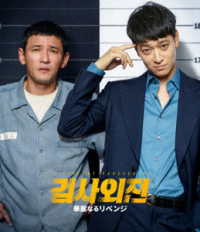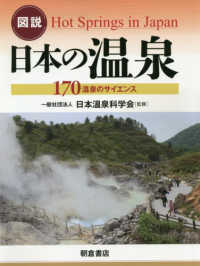- ホーム
- > 洋書
- > 英文書
- > Literary Criticism
Full Description
While all fiction uses words to construct models of the world for readers, nowhere is this more obvious than in fantasy fiction. Epic fantasy novels create elaborate secondary worlds entirely out of language, yet the writing style used to construct those worlds has rarely been studied in depth. This book builds the foundations for a study of style in epic fantasy. Close readings of selected novels by such writers as Steven Erikson, Ursula Le Guin, N. K. Jemisin and Brandon Sanderson offer insights into the significant implications of fantasy's use of syntax, perspective, paratexts, frame narratives and more. Re-examining critical assumptions about the reading experience of epic fantasy, this work explores the genre's reputation for flowery, archaic language and its ability to create a sense of wonder. Ultimately, it argues that epic fantasy shapes the way people think, examining how literary representation and style influence perception.
Contents
Table of Contents
Acknowledgments
Preface
Introduction: Building Worlds with Words in Epic Fantasy
Section I: Syntactic Complexity
Chapter 1.
"The Riotous Conflagration of Beauteous Language": Flowery Style, Defamiliarization, and Empathic Imagination
Chapter 2.
"A Necessary Subtraction": Simplicity, the Violent Emotion of Editing, and the Editing of Violence
Section II: Narrative Perspective
Chapter 3.
Third-Person Heroism: Authority, Omnipotent Narration, and the Distribution of Visibility
Chapter 4.
First-Person Epic Novels: Metafantasy and Fluid Perspective
Section III: Wonder
Chapter 5.
Spoiler Alert: Twists, the Sense of Wonder, and Narrative Transcendence
Chapter 6.
The Mundane Fantastic: Stylistic Magic and Genre Collisions
Section IV: Narrative Frames
Chapter 7.
Narrative Frames: Paratexts, Blurred Boundaries, and the Deconstruction of Essentialist Narrative
Chapter 8.
Frame Narratives: Historical Truth, Literal Metaphors, and Epic Irony
Chapter Notes
Works Cited
Index








